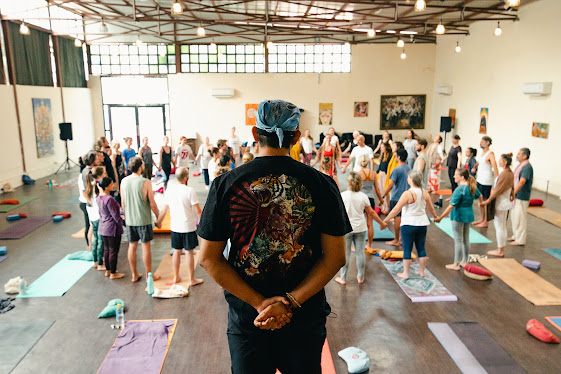Adapting to the Virtual Classroom: Tips for Success in Online 200 hour Yoga Teacher Training
In recent years, the popularity of online education has soared, providing students with the flexibility and convenience of learning from anywhere in the world. This trend has also extended to yoga teacher training, including the prestigious 200 hour Yoga Teacher Training program. Whether you are enrolled in an Online 200 hour Yoga Teacher Training course or specifically at the renowned Sattva Yoga Academy in Rishikesh, adapting to the virtual classroom environment is essential for success. Here are some valuable tips to help you thrive in your online journey:
Create a Dedicated Learning Space:
Designate a quiet and clutter-free area for your online yoga teacher training. Having a dedicated space helps cultivate a focused and conducive learning environment. Ensure that your space has good lighting, a comfortable seating arrangement, and minimal distractions.
Establish a Consistent Routine:
Set a daily schedule that aligns with your online yoga teacher training program. Consistency is key to developing discipline and staying motivated. Allocate specific hours for attending live classes, self-study, practice sessions, and assignments. Stick to your routine to maintain a sense of structure throughout your training.
Stay Engaged and Participate Actively:
Actively engage with your instructors and fellow students to enhance your learning experience. Participate in online discussions, ask questions, and contribute to group activities. Take advantage of the interactive nature of virtual classrooms to build connections and exchange ideas.
Optimize Technology and Internet Connectivity:
Ensure that you have a reliable internet connection and a computer or device that meets the technical requirements of your online yoga teacher training. Familiarize yourself with the virtual learning platform and any additional tools or software used. Regularly update your devices to avoid compatibility issues.
Embrace Self-Motivation and Discipline:
As an online learner, you have the flexibility to manage your own time. However, self-motivation and discipline are crucial to stay on track. Set realistic goals, break them down into manageable tasks, and hold yourself accountable. Regularly review your progress and celebrate milestones along the way.
Practice Self-Care and Mindfulness:
Yoga teacher training can be intense, both physically and mentally. Prioritize self-care and incorporate mindfulness practices into your daily routine. Take breaks when needed, practice meditation or pranayama (breathing exercises), and maintain a healthy lifestyle to nurture your well-being throughout the training.
Utilize Available Resources:
Take advantage of the resources provided by your online yoga teacher training program. This may include recorded lectures, study materials, practice videos, and additional reading materials. Maximize these resources to deepen your understanding and enhance your learning experience.
Stay Connected with Your Peers:
Although you may be physically distant from your fellow trainees, it is essential to stay connected virtually. Join study groups, create online communities, or engage in forums to foster a sense of camaraderie and support. Share experiences, exchange insights, and celebrate each other's progress.
Adapting to the virtual classroom requires discipline, dedication, and a proactive approach. By following these tips, you can maximize your Online 200 hour Yoga Teacher Training experience, whether you are enrolled in a program in Rishikesh or any other reputable institution. Embrace the flexibility of online learning, leverage the available resources, and cultivate a mindset of growth and continuous improvement. Remember, your commitment and enthusiasm will ultimately pave the way for your success as a certified yoga teacher.




Comments
Post a Comment